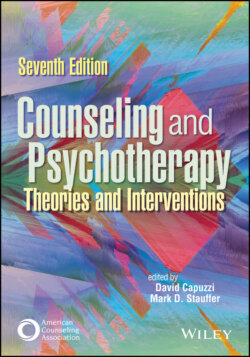Читать книгу Counseling and Psychotherapy - Группа авторов - Страница 93
Mutual Empathy
ОглавлениеRCT discusses the role of mutual empathy, which is distinct from the “one-way empathy” often discussed in mental health literature, as a critical factor in healing (Jordan, 2018). In RCT, mutual empathy is an experience in which a person recognizes their impact on the listener, an experience in which the listener acknowledges being moved by, and because of, the sharer’s experience. This awareness of impact—of mattering and significance—has a profound effect on the person sharing the experience. RCT would say that both people are changed by the experience, and growth and healing occur in that shared context.
The concept of mutual empathy, while powerful, needs clarification. Mutual empathy speaks to the mutuality of the exchange. Like all counseling theories, RCT is clear in articulating that mutuality is not synonymous with “sameness, equality, or reciprocity” (Jordan, 2018, p. 138). Counselors attend to the needs of their clients, and clients are not responsible for caring for the needs of their counselors. Mutuality is related to mattering and significance. Clients are empowered by knowing they matter—knowing their impact. As such, counselors help clients see their impact by being open to being moved by their clients.
A counselor who is hearing a client’s accounting of a loss or difficult situation responds with genuine feeling rather than with a pat phrase or canned therapeutic response (Jordan & Duffey, 2020). Rather than the blank slate response espoused by some theories, RCT calls on counselors to be vulnerable and genuinely connect with their clients. This RCT concept has been popularized by writers such as Brene Brown (2015) and others through the language of vulnerability, which RCT sees as a by-product of strength (Miller & Stiver, 1995).
